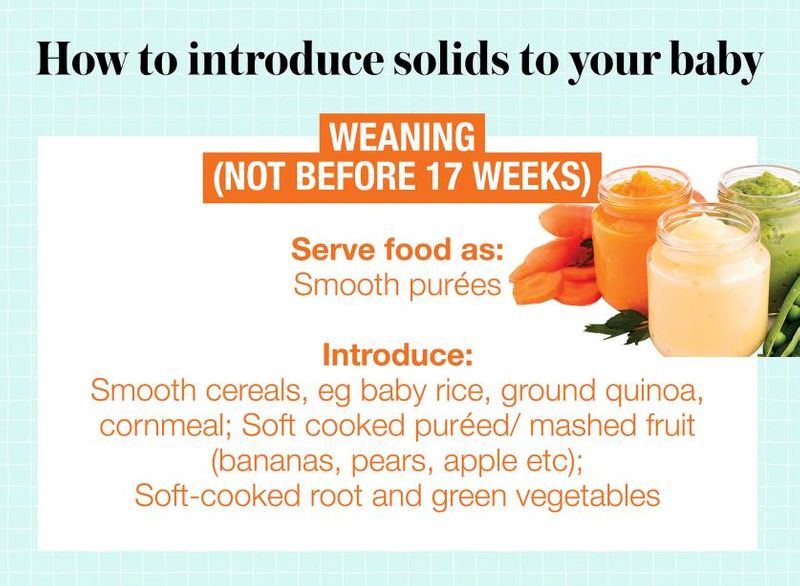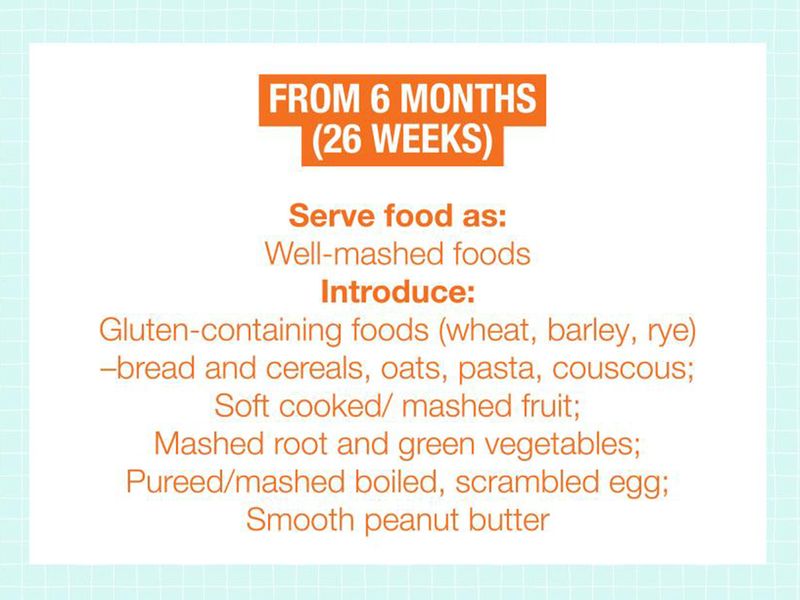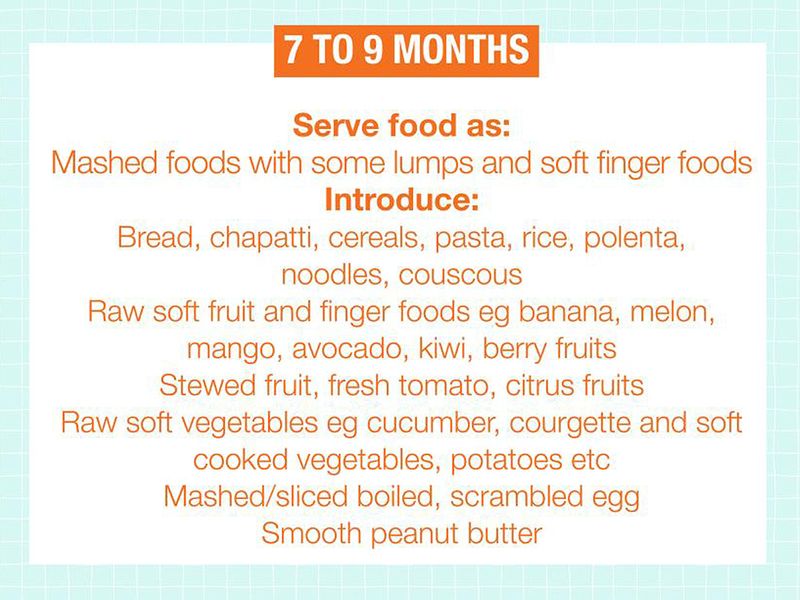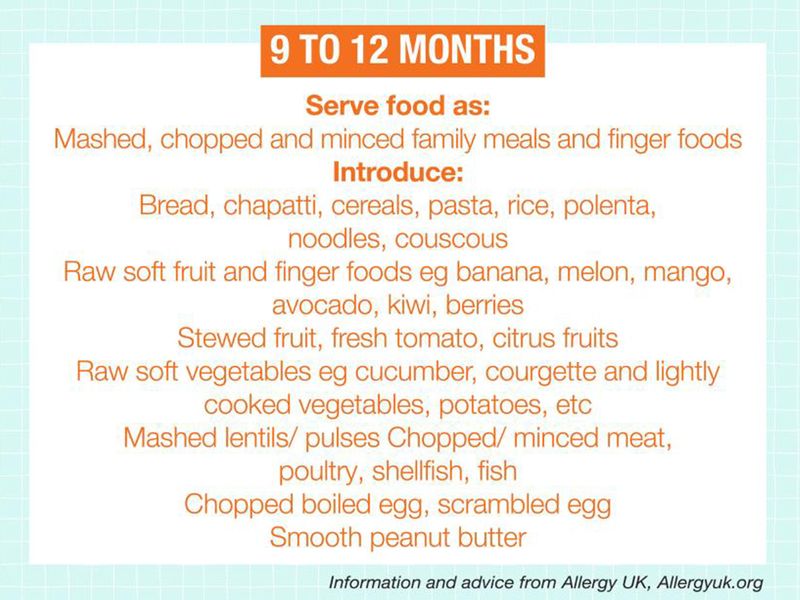
Weaning (also known as complementary feeding) is the process of introducing solid foods into a baby’s diet. The age a baby is developmentally ready for solid foods will vary between the ages of four to six months. Signs that your baby is ready for solid food include the ability to sit up, holding their head steady, an interest in food and being able to bring their hands to their mouth.
How should I introduce foods that commonly cause allergies?
Foods more commonly associated with allergies include:
Cow’s milk, egg, wheat, gluten, soya, fish, shellfish, sesame and other seeds, peanuts and tree nuts
You can include any of these foods as part of your family’s diet alongside other foods you are feeding your baby during weaning.
As a precaution, when you first introduce these foods, you should introduce them one at a time for three days and, if baby has no symptoms, the next new food can be introduced. Once potential allergens, such as egg and peanut, have been introduced it is recommended that you continue to include them in your baby’s diet, ideally at least twice a week, to ensure that your baby remains tolerant to that food.
When introducing these foods for the first time, make sure your baby is well and free from illness as this can place their immune system under stress and can also make it more difficult to identify whether any symptoms are due to their illness or because of an allergic reaction. It is a good idea to introduce a new food in the morning and on a day that your baby can be observed by you. If you are concerned that your baby is reacting to a certain food, stop giving that food and seek medical advice from a health professional.
It is important to note that not all adverse reactions to foods are because of allergy; for example some foods ie strawberries, tomatoes, citrus fruits, can irritate the skin and cause a red rash around the mouth after eating.
Advice for babies who may be at ‘higher risk’ of food allergy
You may be worried about food allergy if there is a strong family history of allergy, but this does not always mean that your baby is at higher risk. The most important factors to increase the risk of your baby developing a food allergy are whether they have developed eczema early in life and if your baby already has a food allergy, such as a cow’s milk allergy.
Recent research has found that babies who are at a higher risk of food allergy may benefit from earlier introduction of egg and then peanut to prevent allergies to these foods developing.
It is preferable to wait until eczema is under control before introducing allergenic foods. If the skin barrier is not working well, which happens in conditions like eczema where dry skin can become broken and damaged, there is a risk that allergens such as foods or allergens in the air we breathe can enter through the broken skin barrier. This may then be recognised as harmful by the immune system leading to the development of allergy antibodies (called ‘sensitisation’). The risk of sensitisation to foods is lower if your baby is already eating that food.
Information and advice from Allergy UK, Allergyuk.org




Read more:








